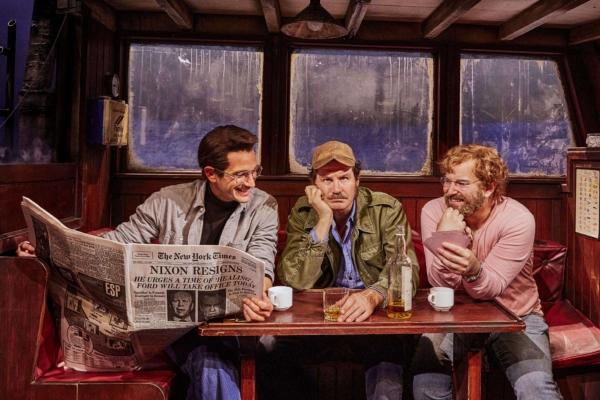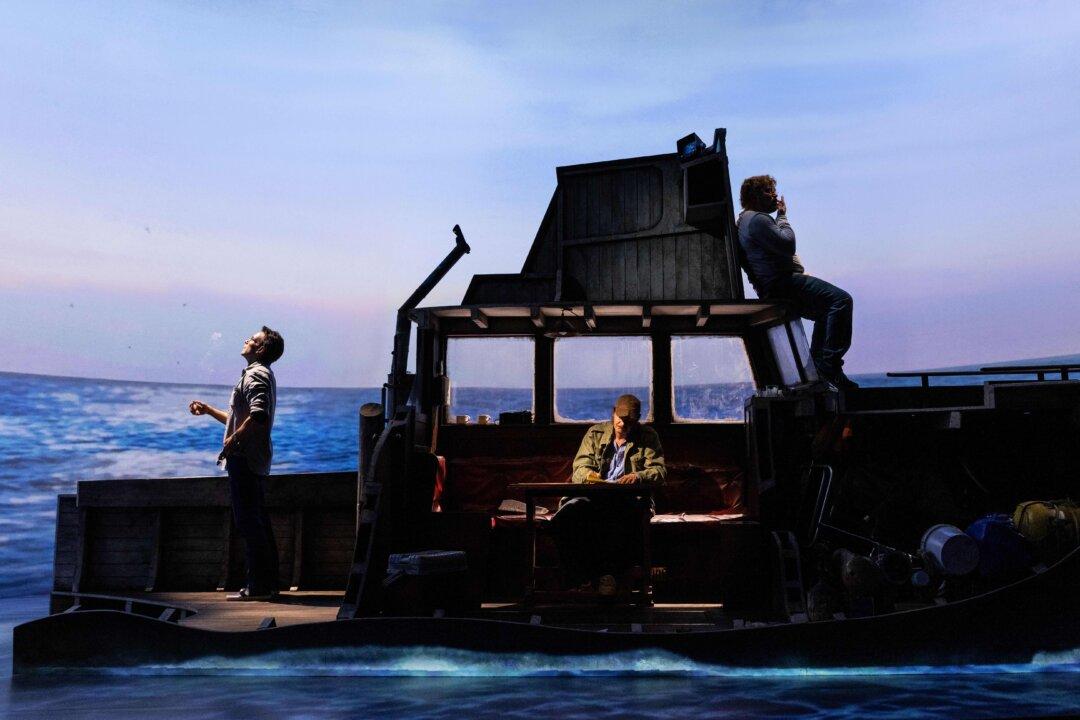NEW YORK –The behind-the-scenes turmoil that occurred during the making of the 1975 film “Jaws” is the stuff of cinematic legend. The production featured actors who did not get along, a script often rewritten at the last minute, and the continual malfunctions of the mechanical shark used during the underwater scenes. All of these issues, along with the sardonic humor that comes from hindsight, are enjoyably brought to the Broadway stage in the comedy the “The Shark Is Broken.”
Talking on a Fishing Boat
The action takes place on the open ocean, east of the island of Martha’s Vineyard, on the fishing boat Orca. Actors Roy Scheider (Colin Donnell), Richard Dreyfuss (Alex Brightman), and Robert Shaw (Ian Shaw, the son of Robert) wait yet again as the technical team tries to get the shark to work properly. In the meantime, the three play cards, talk, drink, quarrel and occasionally become introspective as the time ticks slowly by.
(L–R) Roy Scheider (Colin Donnell), Robert Shaw (Ian Shaw, the son of Robert), and Richard Dreyfuss (Alex Brightman) in “The Shark Is Broken.” Matthew Murphy





